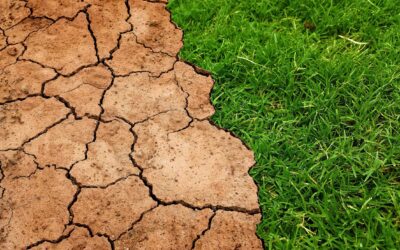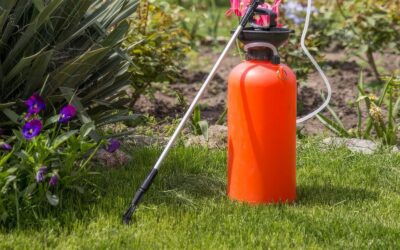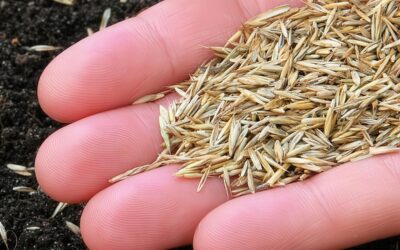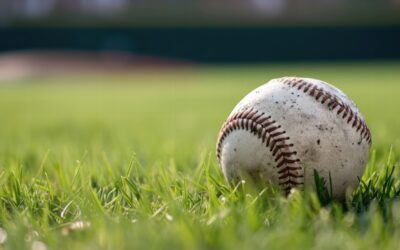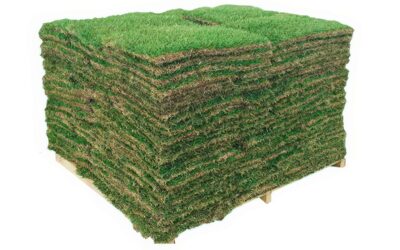Kyle Pitts, Grady Jarrett, Logan Woodside, and their teammates at the Atlanta Falcons ply their trade on artificial grass at the Mercedes-Benz Stadium—as does the Atlanta United soccer team.
Many football enthusiasts, players, commentators, and NFL franchise owners have been weighing up the pros and cons of artificial turf vs. natural grass playing fields—but the Mercedes-Benz Stadium opted for synthetic turf some years ago.
In doing so, the stadium became one of 15 NFL stadiums (used by 17 NFL teams) that now employ synthetic turf rather than real grass for home games.
Here’s what else you need to know about the artificial turf at the Mercedes-Benz Stadium and the main pros and cons of turf and grass…
Mercedes-Benz Stadium: Brief history
Mercedes-Benz Stadium is a multi-purpose stadium located in Atlanta. It boasts a capacity of 71,000 and is a relative newcomer to the world of NFL stadiums, having been completed in 2017.
The stadium replaced the Georgia Dome as the home of the Falcons and Atlanta United FC. The total construction was thought to cost around US$1.6 billion, less than one-third of the cost of the SoFi Stadium in Los Angeles but still the sixth most expensive stadium in the world.
One of its standout features is the retractable roof, which features a “pinwheel” consisting of eight translucent, triangular panels. The design was inspired by the Roman Pantheon.
The current incarnation of artificial turf used at the stadium is not the one installed when the stadium officially opened in 2017. A new turf installation was undertaken in 2019 and another in 2022—more details in the next section.
The stadium is owned by the state government of Georgia and is operated by the AMB Group, which is the parent organization of both the Falcons and Atlanta United FC.
As well as NFL and MLS games, the stadium hosts the SEC football championship game and the Peach Bowl. It also hosted Super Bowl LIII in 2019 and is scheduled to hold the 2025 College Football Playoff National Championship and several matches during the 2026 FIFA World Cup.
The Mercedes-Benz Stadium’s inclusion as a FIFA World Cup venue means that it will need to replace artificial grass with real grass temporarily to comply with FIFA rules (all stadiums must have a natural grass playing surface)—a challenge that has faced several stadiums selected for World Cup games in the U.S.
Why was artificial turf installed at The Mercedes-Benz Stadium?
The decision to go with artificial turf over natural grass was made early on in the design process, largely due to concerns that real grass would find it tough to thrive long-term under the retractable roof.
Falcons executives had originally hoped to have a natural grass playing surface under the retractable roof. An extensive “sun study” determined that this was not possible, with the stadium’s lead architect saying:
“What we found was … it is impossible to have natural grass in the building because the building is so tall we don’t get enough light on the field to grow the grass,”
A heavy events schedule was also planned for the new stadium, making it necessary to install a turf that could stand up to the wear and tear and that could be relatively easily replaced as required.
The key decision then changed from whether to go with turf or grass to which type of artificial grass to install for the best playing surface.
A major benefit of artificial grass for playing surfaces is its low maintenance characteristics. Unlike real grass, turf requires no cutting, watering, re-seeding, aerating, fertilizing, weeding, and so on. The turf looks pristine in all weathers with very little effort from the team looking after the stadium. For this reason, synthetic grass is very economical when compared to real grass.
What type of turf is installed at The Mercedes Benz Stadium?
The turf installed at the Mercedes-Benz Stadium is FieldTurf’s Revolution 360 surface.
The Georgia Dome had a long history of using artificial turf stretching way back to 1992 when AstroTurf was first installed. The relationship with FieldTurf started in 2003 and remained in place until the stadium’s demolition after the construction of the Merecedes-Benz Stadium.
FieldTurf is headquartered in Canada but its primary manufacturing facility is located in Calhoun, Georgia.
Revolution 360 is the company’s top-of-the-line product and the turf was used on three training fields as well as the main playing surface in the stadium.
The turf is constructed from monofilament fibers and is one of the most popular artificial playing surfaces in the country. FieldTurf is also used at Lumen Field, the home of the NFL’s Seattle Seahawks and MLS’s Seattle Sounders.
Revolution 360 uses an innovative pad system, known as VersaTile, for shock attenuation and drainage, as well as a cooling system to reduce the surface temperature (artificial grass can get hotter than real grass).
Since the 2017 opening of the Mercedes-Benz Stadium, the Atlanta Falcons have installed a new FieldTurf playing surface in 2019 and again in February 2022.
What’s the plan for real grass for the FIFA World Cup in 2026?
Despite the undoubted challenges of growing real grass under a tall stadium that gets little sunshine—and keeping it healthy for an extended period—the AMB Group is confident that a temporary “hybrid” grass solution will be in place when the World Cup matches kick off in 2026.
This will be the first time that a real grass surface has been used at the Mercedes-Benz Stadium, though the Georgia Dome used temporary grass surfaces half a dozen times in its history.
Plenty of work has already gone into developing a hybrid grass that can be maintained indoors or in other challenging climates. The know-how and technology are there and it just needs harnessing and preparation for an effective installation.
The switch to real grass will be strictly temporary for the World Cup. AMB Group has no plans for a permanent conversion away from the turf at the Mercedes-Benz Stadium.
Artificial turf vs. real grass at NFL stadiums
The turf vs. grass debate is a fairly even one in the NFL.
The Atlanta Falcons are one of 17 NFL teams at 15 stadiums around the country to play on artificial grass home fields. Compare that with 13 teams playing on grass and two on hybrid fields.
Let’s consider the main pros and cons of artificial grass compared to real grass for playing surfaces:
Main pros of artificial turf for NFL
- Very low maintenance
- Highly cost-effective
- Natural appearance all year round
- Weather resistant (rain, sun, ice and snow)
- Increased playing time (fewer weather interruptions)
- Highly durable
- Drains well
- Little water required
- Few chemicals used
- No mud
Main cons of artificial turf for NFL
- Higher installation price
- Some players prefer natural grass
- Some negative stigma remains about turf
- Requires infill, which may contain chemicals
- Hotter than grass
Main pros of real grass for NFL
- Looks natural and lush when well-kept
- Gives out oxygen and filters pollution
- Absorbs heat well
- Absorbs moderate rainfall well
- Generally good traction
- Cushioned feel
Main cons of real grass for NFL
- Sodding required
- High maintenance with mowing, edging, aeration, weed control, watering, etc.
- Sprinkler system and irrigation required
- Compaction and bare spots may occur
- Muddy in wet weather
- Heavy rainfall may lead to standing water
- May be damaged by icy conditions
Artificial turf has a bright future at the Mercedes-Benz Stadium
NFL franchise owners cannot help but be impressed by the many benefits of artificial turf playing surfaces: chiefly, their ease of maintenance/low water usage, a year-round immaculate appearance, and cost-effectiveness.
Many stadiums have made the switch to artificial grass in recent years—and the Mercedes-Benz Stadium has continued the proud turf tradition of the Georgia Dome since 1992.
If you’re in the Atlanta area and are considering artificial turf for football, soccer or any other indoor or outdoor sport, speak with one of our artificial grass professionals to check your options.

